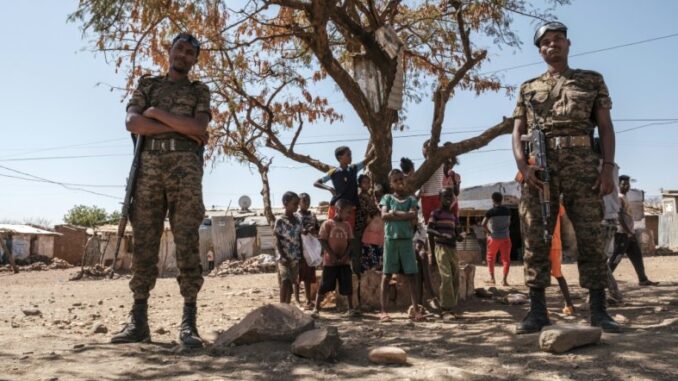
The Ethiopian refugee agency justifies the closure of the Eritrean refugee camps of Hitsats and Shimelba by the so-called unsanitary conditions in these camps, while the UN, numerous testimonies and investigations based on satellite photos indicate that they were destroyed during the fighting and emptied of their inhabitants.
Despite the visual evidence and testimonies of the survivors, the Ethiopian government continues to deny everything: that the camps were attacked, that thousands of refugees living there disappeared and that large-scale crimes were committed.
However, on Tuesday, the president of the Ethiopian Refugee Agency, Tesfahun Gobezay, confirmed that the two camps would be permanently closed. For him, for example, the Hitstats camp, located in a desert, is “uncomfortable”. The refugees who were still there would have been taken to other camps, Adi Harush and Mai Ayni, which are accessible to humanitarians.
The satellite images of Hitsats and Shimelba are however overwhelming. UN facilities, a hospital, schools and hundreds of homes were burned. A military presence is clearly identifiable, according to the investigation of the British DX Open Network published Tuesday. The day before, the Norwegian Refugee Council had already protested against the destruction of its facilities, as revealed by other images.
As for the few survivors of Hitsats and Shimelba, they are beginning to talk to the press, recounting the violence, mass kidnappings, murders, robberies and rapes.
And on Wednesday, at a press conference in Addis Ababa, the Ethiopian Red Cross warned that 80% of Tigray was still inaccessible to humanitarian aid. The organization warned of a possible famine in the region.
